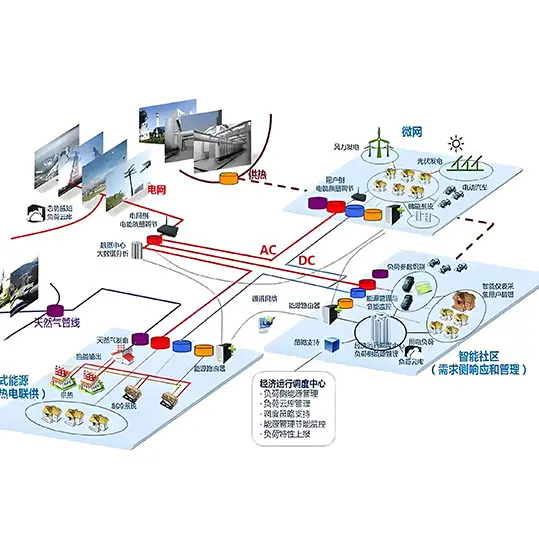01 Energy storage and photovoltaics are two industries
The relationship between the two is that the photovoltaic system converts solar energy into electrical energy, and the energy storage system stores the electrical energy generated by the photovoltaic equipment. When this part of the electrical energy is needed, it is inverted into AC power through the energy storage converter for use by the load or the grid.
02Explanation of key terms
According to Baidu’s explanation: In life, there are some occasions where AC power needs to be converted into DC power, which is a rectifier circuit. In other situations, DC power needs to be converted into AC power. This reverse process corresponding to rectification is defined as inversion. circuit. Under certain conditions, a set of thyristor circuits can be used as both a rectifier circuit and an inverter circuit. This device is called a converter, which includes rectifiers, inverters, AC converters, and DC converters.
Let’s understand again:
The English name for converter is converter, which is generally implemented by power electronic components. Its function is to realize the transmission of power. It is divided into the following types according to the different voltage types before and after conversion:
DC/DC converter, both front and rear are DC with different voltages. The function of DC transformer is
AC/DC converter, AC to DC, the role of rectifier
DC/AC converter, DC to AC, the role of inverter
AC/AC converter, the front and rear frequencies are different, the function of the frequency converter
In addition to the main circuit (respectively, the rectifier circuit, the inverter circuit, the AC conversion circuit and the DC conversion circuit), the converter also needs a trigger circuit (or drive circuit) to control the on and off of the power switching element and realize the regulation of electric energy. control circuit.
The English name of the energy storage converter is Power Conversion System, or PCS for short. It controls the charging and discharging process of the battery and converts AC to DC power. It is composed of a DC/AC bidirectional converter, a control unit, etc.
03PCS General Classification
It can be divided into two different industries: photovoltaic and energy storage, because the corresponding functions are essentially different:
In the photovoltaic industry, there are: centralized, string, and micro inverters
Inverter – DC to AC: The main function is to invert the DC power converted by solar energy into AC power through photovoltaic equipment, which can be used by the load or integrated into the power grid or stored.
Centralized type: applicable to large-scale ground power stations and distributed industrial and commercial photovoltaics. Generally, the output power is greater than 250KW.
String type: applicable to large ground power stations, distributed industrial and commercial photovoltaics (generally output power is less than 250KW, three-phase), household photovoltaics (generally output power is less than or equal to 10KW, single-phase),
Microinverter: applicable scope is distributed photovoltaic (general output power is less than or equal to 5KW, three-phase), household photovoltaic (general output power is less than or equal to 2KW, single-phase)
Energy storage systems include: large storage, industrial and commercial storage, household storage, and can be divided into energy storage converters (traditional energy storage converters, Hybrid), all-in-one machines
Inverter-AC-DC conversion: The main function is to control the charge and discharge of the battery. The DC power generated by photovoltaic power generation is converted into AC power through the inverter. At this time, part of the electrical energy needs to be stored in the battery, and the energy storage converter needs to be used to convert it. The alternating current is converted into direct current for charging. When this part of the electric energy is needed, the direct current in the battery needs to be converted into alternating current (generally 220V, 50HZ) through an energy storage converter for use by the load or integrated into the power grid. This is discharge. process.
Large storage: ground power station, independent energy storage power station, generally the output power is greater than 250KW
Industrial and commercial storage: general output power is less than or equal to 250KW
Household storage: generally the output power is less than or equal to 10KW
Traditional energy storage converters: mainly use AC coupling solutions, and the application scenarios are mainly large storage
Hybrid: Mainly adopts DC coupling solution, and the application scenario is mainly household storage.
All-in-one machine: energy storage converter + battery pack, the products are mainly sold by Tesla and Ephase

